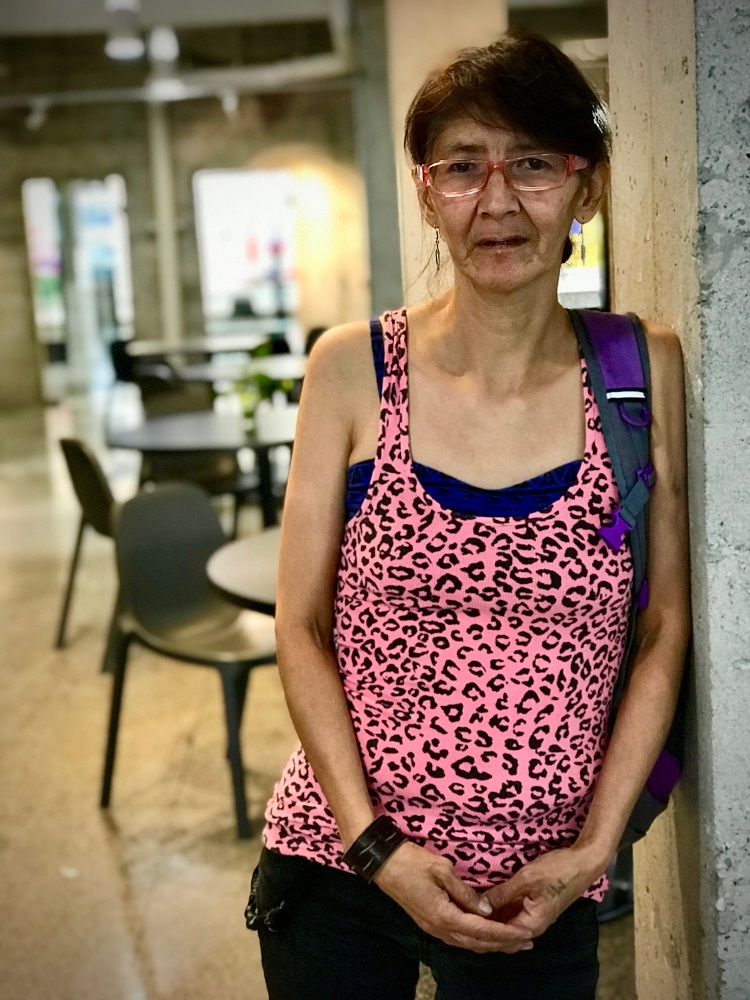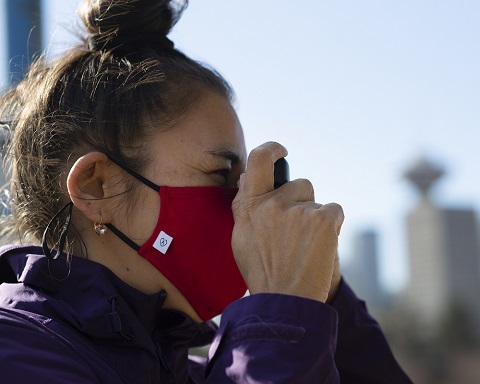By Paula Carlson, Megaphone
Sue is a long-time Downtown Eastside (DTES) resident who attended Strathcona Elementary as a child and remembers growing up in a neighbourhood where she and her mom would get free fish heads from fishermen to make bubbling pots of fish head soup.
Her father was from Red Lake, Minnesota, and her mom was born in Powell River, British Columbia. Sue was born in Seattle and remembers coming back and forth to Vancouver by train until the DTES eventually became her permanent home.
Two years ago, a friend introduced her to the Megaphone community and Sue started selling the Hope in Shadows calendars in Vancouver.
She’s known by many as a strong woman because, while she may be physically diminutive, she shoulders a lot on her small frame.
The 50-year-old Tla’amin Nation (formerly Sliammon) woman has had more than her share of pain; losing nearly everyone dear to her to tragic circumstances.
The youngest in a family of eight sisters and four brothers, Sue and one other sister, along with one brother, are the only siblings still alive. Two sisters were lost to drug overdoses, a third to murder, and three of her brothers have died—one from drinking, another in a car accident and a third from tuberculosis.
Her father succumbed to alcoholism and her mother also perished in a car crash. Other deaths that Sue has endured include her son’s father and her daughter’s twin sister.
Seven years ago, her ex-partner took his own life and, in the same year, she found out that she had cancer and learned she was going to be a grandmother. (Sue is a mom of two grown children, a son and a daughter, and now has two granddaughters.)
“Oh God, I had a hard time in 2012. I’ve been through a lot,” Sue says. “But I’m still here. That’s positive. Everyone tells me I’m a strong woman.”

How does she cope with such deep loss?
“I’ve learned a lot,” Sue says. “Nowadays I go to school; I do a lot of schooling. I’ve taken Narcan training. I try to get educated as much as I can, to learn things and to help the people on the street so they can acknowledge that someone cares.
“I help others. That’s what my mom told me I have to do. That’s what my goal is: I’m always going to help people. I’m always going to be a mother hen.”
Sue is in good health now. Chemo knocked back the cancer and she battled her way back from substance use. She’s mastering traditional arts and enjoys other pastimes. “I know how to make regalia [for powwow, social events held by numerous Native American communities], I know how to tan hides, I make hand drums, I’ve learned beading, I make beaded earrings, I do macramé [a form of textile produced using a knotting technique]. I’ve done a one-pot cooking class.”
She also likes hiking, getting out in nature and playing tennis.
“Oh gosh, I used to be good at tennis!” she says, laughing, “back in the day.”
She also writes poetry.
“One of my girlfriends used to pay me to write love poems to her boyfriend,” she confides.
Having good friends and being around positive people are the keys to getting through tough times, says Sue, who serves as a powerful elder in her community and encourages others during their own challenges.
“It took me a long time to get where I am now,” she says. “As I’m getting older, I’m starting to understand myself more.”
Sue believes that if the public knew more about the personal stories of Downtown Eastside residents, they might have more compassion for the hardships they face.
“We would understand more about each other.”
She says what she likes most about selling Megaphone are the conversations she has with her customers.
“I joke around with them and stuff. But I also like to help them educate themselves about the people down here, instead of just snubbing their noses at us. My stars, it gets me so irritated when people roll their eyes at us.”




















